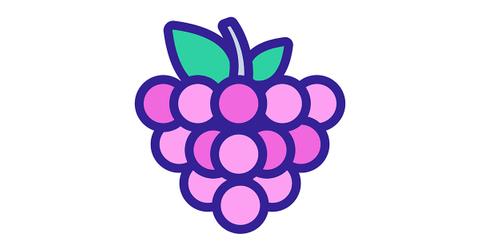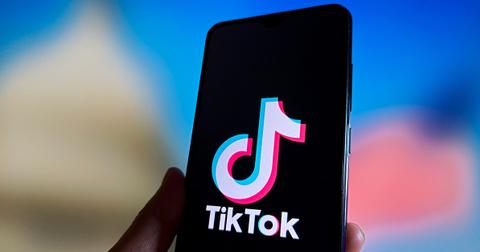People Use the Grape Emoji in Part to Avoid Getting Banned From TikTok
The grape emoji stands for a pretty sensitive subject that is censored on TikTok.
May 22 2024, Published 11:33 a.m. ET

Content warning: This article mentions sexual abuse.
If you've ever been on TikTok, you likely know that it's not always easy to understand exactly what folks on the platform are talking about. Sometimes, they come up with new words or acronyms that feel totally impenetrable, and sometimes, they use emojis in places where it doesn't seem like they should go.
Recently, some users have noticed that the grape emoji is popping up all over TikTok, and are trying to figure out why it's being used so frequently. Here's what we know about the emoji, and what it seems to be standing in for.

What does the grape emoji mean on TikTok?
As is the case with almost any emoji, the grape emoji can mean a couple of different things. Sometimes, it can genuinely be referring to grapes. Other times, it appears to be a stand-in for the word "great," largely because the two words sound so similar.
The chief way that the grape emoji is used on TikTok, though, is as a stand in for the word "rape."
The reason that the emoji is used is that actually using the word rape on TikTok can flag the platform's censors and lead to consequences for your account. Rape is not the only word that has received this treatment, which is why some people now say that someone was "unalived" in their videos instead of simply saying he was "killed." TikTok has led to the creation of an entire new language designed to get around their censors.
Some users are not huge fans of this language.
Words like kill and rape are, by their very nature, quite serious, which is why some users on TikTok get very annoyed when less serious substitutes are used in their place. While some people may do it to make light of these topics, most people wind up using the substitutes because it's the only way they can discuss the topic at all on TikTok.
While some people may discuss things inappropriately on the platform, there are also some users who are frustrated by the topics that they are completely unable to deal with seriously on TikTok.
This is at least partially intentional on TikTok's part. The platform is designed for lighter topics and entertainment, and censoring certain words means that videos about those topics are being pretty actively discouraged.
Of course, as is often the case in every area of life, that decision also came with some unintended consequences. So, instead of people just refusing to discuss those topics on TikTok, they came up with new ways to discuss them that worked around TikTok's censorship.
If conversations about sensitive topics are going to happen on TikTok whether the platform wants them to or not, it might make more sense for them to be happening without the need to describe rape as "grape" and killing someone as "unliving" them. In the immediate future, though, it doesn't seem like TikTok is planning to reevaluate its policies.
If you need support, call the National Sexual Assault Hotline at 1-800-656-4673 or visit RAINN.org to chat online one-on-one with a support specialist at any time.